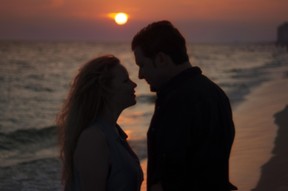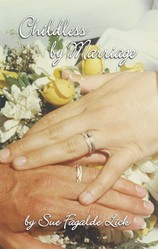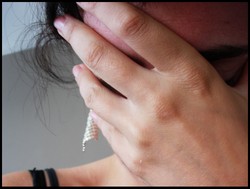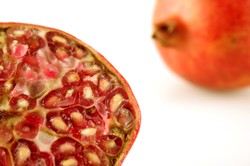 There is a great deal in Sue's story which resonated deeply with me. I also found a partner who was considerably older than me, yet was perfect in every way when it came to our interests, desires, and passions in life. Except that when getting pregnant didn't happen naturally after several years of trying (or at least, not trying to prevent it), he was not interested in pursuing alternative family building options. I've had to struggle with many of the emotions and feelings that Sue describes in her book: feeling left out of a part of life most people take for granted; being the "odd duck in that room full of Canada Geese" when women get together and all talk becomes centered around their kids and grandkids; wondering who will remember you or if your life will have any lasting meaning without procreating; and perhaps most importantly, accepting that perhaps our desire for children was not as strong as we thought, if we were willing to stay with a partner out of love even if it meant ruling out parenthood.
There is a great deal in Sue's story which resonated deeply with me. I also found a partner who was considerably older than me, yet was perfect in every way when it came to our interests, desires, and passions in life. Except that when getting pregnant didn't happen naturally after several years of trying (or at least, not trying to prevent it), he was not interested in pursuing alternative family building options. I've had to struggle with many of the emotions and feelings that Sue describes in her book: feeling left out of a part of life most people take for granted; being the "odd duck in that room full of Canada Geese" when women get together and all talk becomes centered around their kids and grandkids; wondering who will remember you or if your life will have any lasting meaning without procreating; and perhaps most importantly, accepting that perhaps our desire for children was not as strong as we thought, if we were willing to stay with a partner out of love even if it meant ruling out parenthood.
Like Sue, I have enjoyed the comfort afforded to me in being with a partner who gives us a stable enough life that I can put my time more fully into my artistic and writing pursuits. We have our responsibilities and commitments, but also enjoy the freedom afforded to us by not being tied down to the commitment (and costs) of parenthood. Every choice in life has its positives and negatives, and one cannot have everything that we might desire. "If I spent my life creating other people, I would not have time to create myself," Sue states near the end of Childless by Marriage, and much of the time I feel that way as well.
But that doesn't mean I don't often feel those tinges of regret and longing. And these are very real feelings that need to be acknowledged and accepted in our lives.
If I had any quibbles with the book, it's that the structure sometimes feels a little disjointed. It starts out largely autobiographical, beginning with Sue's childhood and going through to her second marriage to Fred. But then it seems to skip around quite a bit through the second half of the book, with chapters on more general issues of being childless: whether being a "dog mom" can be a parenting substitute, planning for elderly issues when we don't have children to take care of our needs, the annual pain of Mother's Day, making the conscious choice to be childfree. Eventually we get back to her story with Fred and its sad conclusion, but I felt almost at times like there were two separate books here that got jumbled together: one an autobiography of a childless woman, the other more of a general study of the social issues of childlessness.
Sue also seems to have difficulty fulling accepting the viewpoint of consciously childfree women. While she acknowledges their point of view and what they see as the benefits of their lifestyle, I always had the feeling that she did not fully agree with their point of view, that she felt in many cases they should think twice about the choice they'd made before they got too old and came to regret it. I do understand that it can be difficult to see woman happily reject their ability to do something when we've had that choice taken away from us by circumstance or illness. But I think it colors the text at time in a way that was unnecessary, and may turn off readers who may be coming from a more childfree point-of-view.
Today, the author maintains a blog also titled Childless by Marriage, where she continues the discussion on this difficult subject. It is well worth checking out, and to read some of the very thoughtful and intense comments and conversations there from women all around the world.



 There is a great deal in Sue's story which resonated deeply with me. I also found a partner who was considerably older than me, yet was perfect in every way when it came to our interests, desires, and passions in life. Except that when getting pregnant didn't happen naturally after several years of trying (or at least, not trying to prevent it), he was not interested in pursuing alternative family building options. I've had to struggle with many of the emotions and feelings that Sue describes in her book: feeling left out of a part of life most people take for granted; being the "odd duck in that room full of Canada Geese" when women get together and all talk becomes centered around their kids and grandkids; wondering who will remember you or if your life will have any lasting meaning without procreating; and perhaps most importantly, accepting that perhaps our desire for children was not as strong as we thought, if we were willing to stay with a partner out of love even if it meant ruling out parenthood.
There is a great deal in Sue's story which resonated deeply with me. I also found a partner who was considerably older than me, yet was perfect in every way when it came to our interests, desires, and passions in life. Except that when getting pregnant didn't happen naturally after several years of trying (or at least, not trying to prevent it), he was not interested in pursuing alternative family building options. I've had to struggle with many of the emotions and feelings that Sue describes in her book: feeling left out of a part of life most people take for granted; being the "odd duck in that room full of Canada Geese" when women get together and all talk becomes centered around their kids and grandkids; wondering who will remember you or if your life will have any lasting meaning without procreating; and perhaps most importantly, accepting that perhaps our desire for children was not as strong as we thought, if we were willing to stay with a partner out of love even if it meant ruling out parenthood.




 A Potentially Fatal Accident in the Homeon 11/24/2018
A Potentially Fatal Accident in the Homeon 11/24/2018
 Windsurfing Lessons on Montserrat: One of My Funniest—and Fondest—Travel Memorieson 11/20/2018
Windsurfing Lessons on Montserrat: One of My Funniest—and Fondest—Travel Memorieson 11/20/2018
 Christmas Ornaments Celebrating Rome, Italyon 11/12/2018
Christmas Ornaments Celebrating Rome, Italyon 11/12/2018
 Philadelphia-Themed Christmas Ornamentson 11/09/2018
Philadelphia-Themed Christmas Ornamentson 11/09/2018



Comments